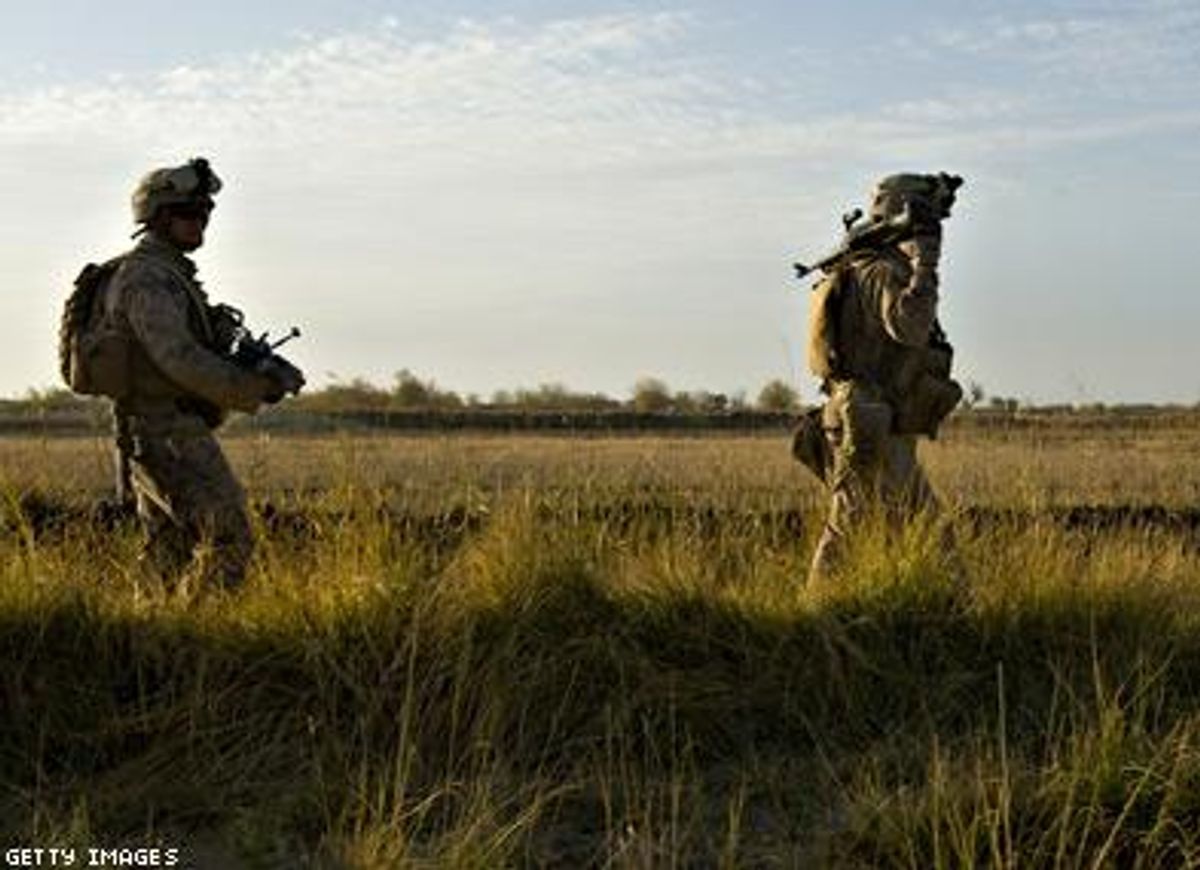World
The Leonard Matlovitch Brigade

By continuing to use our site, you agree to our Private Policy and Terms of Use.

In a Tuesday prime-time address to the nation, President Barack Obama will announce a new strategy for the war in Afghanistan. Eight years into the conflict, the fate of the central Asian country -- which hosted al-Qaeda in the years leading up to the 9/11 terrorist attacks and where Osama bin Laden is still suspected to be hiding -- hangs in the balance. Coalition casualties have risen sharply since January, and public support for the war -- which was near universal when it was first launched -- has fallen to an all-time low. Before a veterans group in August, Obama termed Afghanistan a "war of necessity." Yet the fact that the president has waited almost four months since his handpicked general, Stanley A. McChrystal, entered a request for 40,000 additional troops to make this announcement has earned him a steady current of criticism from conservative commentators, who have accused him of "dithering" and indecisiveness.
It isn't just the right that has accused the president of not fulfilling his promises. Along with finishing the job in Afghanistan, another pledge Obama made during his campaign was that he would lift the military's ban on openly gay soldiers, "don't ask, don't tell." That this too has yet to materialize has earned the wrath of gay activists, some of whom are now calling for a boycott of the Democratic National Committee until the repeal passes.
There's an old saying in politics that you can't please all the people all of the time, yet the dual conundrums of Afghanistan and gays in the military present Obama with a unique opportunity to get further than most in accomplishing just that. To quiet down anger on the right caused by his hesitancy to ramp up America's commitment to Afghanistan, as well as consternation on the left due to the lack of progress on DADT repeal, here's one option for our beleaguered commander in chief: Dispatch an all openly gay unit to fight the Taliban and al-Qaeda. With an overstretched military worn out by repeated stop-loss orders and nearly 13,000 gay soldiers discharged from the armed forces since the enactment of DADT in 1994, this proposal attempts to kill the proverbial two birds with one stone. It will not please everyone entirely, but politics, after all, is the art of compromise. So hear this one out.
Many of the people arguing for a troop surge in Afghanistan --
Republicans who warn that failure to stabilize the country would
inevitably result in another attack on American soil -- are also the
loudest voices in favor of keeping the ban on openly gay soldiers. If
we take them at their word that the safety and security of the American
people is their highest priority, how could they oppose such a plan?
They may not like the notion of openly gay people serving in the armed
forces, but surely it's a better option than retreating from
Afghanistan and letting the country fall to anarchy and the possible
restoration of the Taliban.
Similarly, while a majority of
Americans support repealing "don't ask, don't tell," the energy for
that cause comes from liberals, the vast majority of whom, according to
a succession of polls over the past few months, support withdrawal.
They may blanch at the prospect of escalating our military effort in
that country, but with no immediate repeal of DADT in sight, might they
be willing to dampen their reflexive opposition to the exercise of
American military might if doing so would allow openly gay soldiers to
prove their mettle on the battlefield?
To be sure, the
existence of an all-gay unit -- and let's call it the "Leonard
Matlovich Brigade," in honor of the gay Air Force officer whose fight
to stay in the military, the first time a gay soldier ever publicly
challenged the ban, made the cover of Time magazine in 1975 -- may not
necessarily disprove the chief claim against allowing openly homosexual
soldiers to serve alongside heterosexual ones.
That argument posits
that the mere presence of visible homosexuals would demean "unit
cohesion." Ideally, openly gay soldiers should be allowed to fight
alongside their straight comrades (in some cases they already do, thanks
to more enlightened commanding officers who are willing to overlook the
military's counterproductive policy). Such a development would prove
the speciousness of this fear, a fear that has already been roundly
rebutted by countless straight soldiers like Congressman Patrick
Murphy, who has taken the lead on getting rid of DADT. But a half a
loaf is better than nothing, and allowing gays to serve openly in any
capacity would work to break down this antiquated prejudice.
The
existence of an all-gay unit would put the lie to the charge that gays
are effeminate and weak, and place supporters of the ban in a very
difficult position. With openly gay soldiers risking their lives on the
battlefield, and volunteering to do so, how could they persist in their
support for keeping DADT intact? But the most satisfying aspect of this
policy would be its effect on our Islamist enemies, who not so long ago
were burying gays alive, crushing them under brick walls, and throwing
them off the roofs of buildings (not to mention throwing acid on the
faces of unveiled women and denying the right of girls to go to
school). What humiliation, what shame these barbarians would endure if
after every successful terrorist assassination accomplished by the
Leonard Matlovich Brigade, U.S. Central Command issued a press release
announcing that yet another Taliban fighter bit the dust at the hands
of warrior homosexuals.